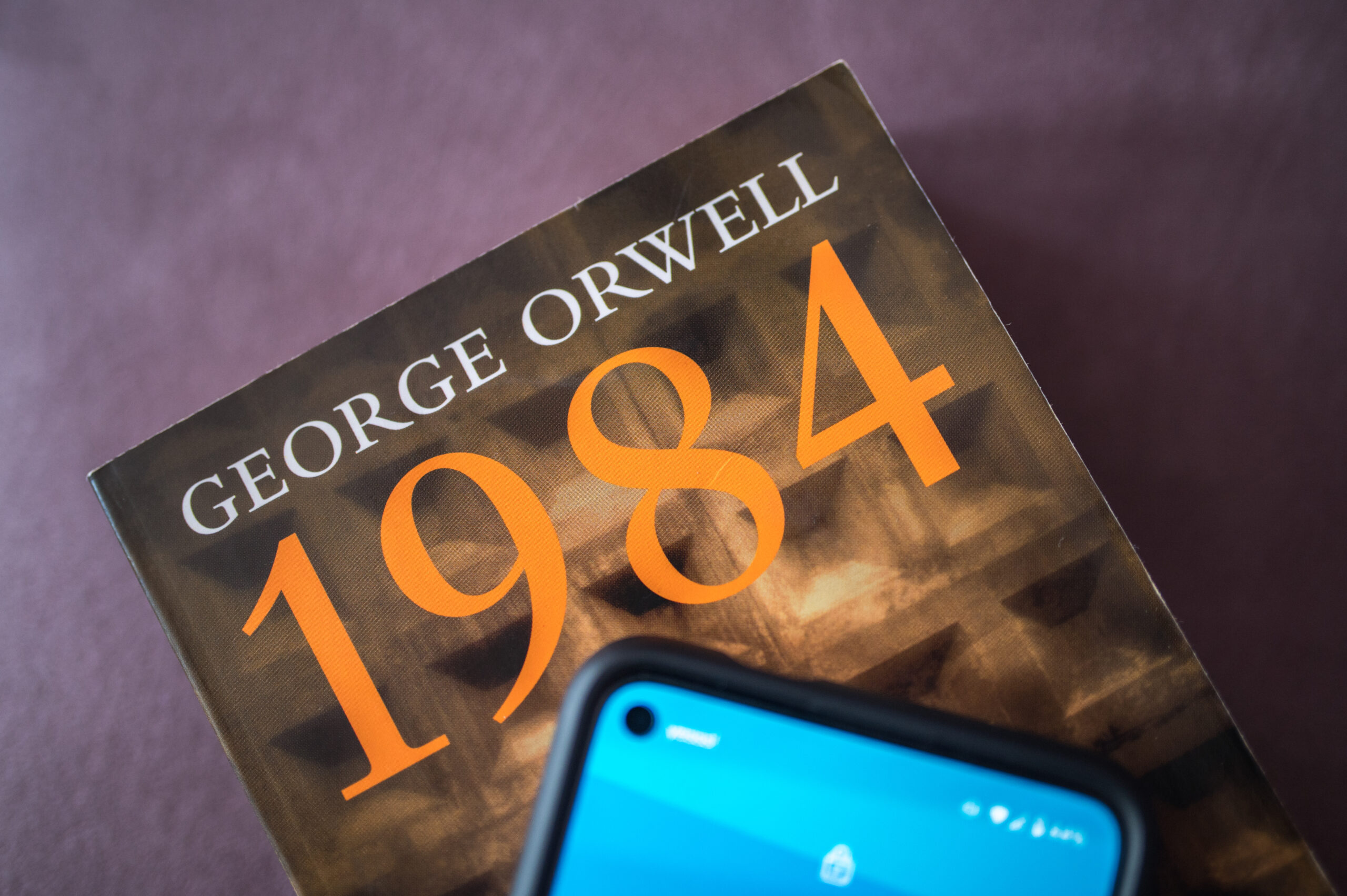
In a digital age where the world feels increasingly fragmented, George Orwell’s 1984 serves as an uncomfortably prescient guide to understanding the forces shaping our society.
Orwell’s vision of a society controlled by surveillance and manipulation of truth remains strikingly relevant. Reading 1984 in the twenty-first century offers a frightening parallel to the political dynamics in the United States (US), where issues of freedom, truth, and power are fiercely contested. Here’s why we should still be reading 1984—and why its warnings are especially crucial for the US.
The Rise of Digital Surveillance: Orwell’s Telescreens Reimagined
The pervasive surveillance system that monitors the citizens of Oceania, is one of the most profound aspects of Orwell’s novel—omnipotent “telescreens” track individuals’ every move, even their facial expressions. While we may not be quite so exposed, we are nonetheless witnessing an erosion of privacy in the digital age. Revelations from whistleblower Edward Snowden about mass surveillance programmes demonstrated how state power can invade personal privacy under the guise of security.
In 2013, the former CIA contractor revealed that the US National Security Agency (NSA) was collecting the telephone records of tens of millions of Americans. The leaks caused widespread fears, with further revelations that the NSA had hacking operations in Hong Kong and mainland China, as well as bugs in European Union offices.
Orwell’s warning about the dangers of surveillance is not just a relic of the Cold War, but a pressing concern in today’s hyper-connected world. As the US continues to confront these questions of digital privacy, 1984 offers a crucial perspective on the consequences of unchecked surveillance power.
From Free Speech to Thought Crime: Social Media and the New Thought Police
Thought and self-expression are considered crimes in Orwell’s Oceania, with the secret police force, “Thinkpol”, using criminal psychology and technological surveillance to punish citizens for possessing thoughts the oppose the regime.
Earlier this month, Axios revealed that the US State Department will use artificial intelligence to revoke visas of foreign students who it perceives to be supporters of Hamas. They plan to monitor social media presence, searching for any interaction with pro-Palestinian sentiments. The AI will be particularly looking for evidence of alleged terrorist sympathies expressed after October 7, 2023.
The Trump administration is also expected to demand access to the social media accounts of people applying for green cards, US citizenship, and asylum or refugee status. US Citizenship and Immigration Services also proposed the new policy in the Federal Register earlier in March 2025, citing such information to be “necessary for a rigorous vetting and screening.”
The use of AI to monitor an individual’s social media presence becomes synonymous with Orwell’s Thought Police. Social media, once an outlet for self-expression, building communities, and open debate, risks becoming a tool for state control. By monitoring and flagging certain political views—whether pro-Palestinian, anti-government, or otherwise—the US government is effectively policing thought and expression.
Patriotism or Sycophancy: Personality Cults and Newspeak
“Newspeak” is implemented by Ingsoc in 1984 to limit independent and dissenting thought by simplifying the English language, eliminating and abbreviating words to prevent challenge to authority. Donald Trump’s followers often parrot hyperbolic slogans—like “MAGA” or “Fake News”—that simplify complex issues into digestible, unquestionable mantras. This reduction of political discourse marks a blind loyalty to Trump.
The ongoing sycophantic fawning of Trump, such as efforts to carve his face on Mount Rushmore or to rename Washington Dulles international airport as Donald J Trump international airport, indicate how the persona he has established is paramount to his political success. These actions aim to reframe him not just as a leader, but as a symbol of American greatness.
More dangerously, Tennessee congressman Andy Ogles proposed a House of Representatives joint resolution to amend the constitution so that a president can serve up to three terms—provided that they did not serve two consecutive terms before running for a third. The push for this constitutional amendment raises the troubling question of where Trump will draw the line if he continues to be enabled in this way. Frighteningly, Orwell’s novel does not see the end of Ingsoc’s totalitarian regime—only broken Winston Smith’s acceptance of it.
A Timeless Reminder
As we face the challenges of the modern world, 1984 serves as a powerful reminder of the dangers of unchecked authority and the fragility of truth. The novel is not just an exploration of a totalitarian state, but a meditation on the struggle for individual autonomy. Winston Smith’s desire for freedom and truth is what ultimately makes the novel so resonant, even decades after its publication.
In 2025, we may not yet be living in a world as extreme as Orwell’s 1984, but the themes of surveillance, propaganda, and the manipulation of truth are more relevant than ever. Reading 1984 today is not only an act of historical reflection, but a necessary step in understanding the political forces at play in our own time. As long as power continues to manipulate language, truth, and reality, Orwell’s warnings will remain as urgent as ever.
And remember, Big Brother is watching you.
Edited by Zhanserik Temirtashev
Image: ‘Close-up of a smartphone on George Orwell’s book “1984”,’ Ivan Radic, 2021// CC BY 2.0



Average Rating